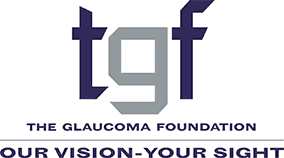
Please join us on Tuesday, March 15, 2022 at 5pm Eastern Time on Zoom where Dr. Louis Pasquale will talk about how artificial intelligence will impact glaucoma prevention and treatment.
Primary open-angle glaucoma (POAG) is a disease subtype defined by chronic, progressive, and irreversible retinal ganglion cell (RGC) loss without clinically evident causes for either elevated intraocular pressure (IOP) or optic nerve degeneration. Globally, there are currently 53 million POAG cases, with projections of 80 million cases by 2040. These staggering statistics are a clarion call to find cost-effective strategies for glaucoma prevention and treatment. This talk will provide an overview regarding our approach to leverage artificial intelligence in large cohorts containing a wealth of biomarker and environment data to meet these challenges and reduce ocular morbidity due to glaucoma.
Louis R. Pasquale, MD is is the Shelley and Steven Einhorn Distinguished Professor of Ophthalmology and Site Chair of the Department of Ophthalmology at Mount Sinai Hospital. He is Vice Chair of Translational Ophthalmology Research at Mount Sinai Healthcare System.
Dr. Pasquale is a member of the PLOS One, Journal of Glaucoma, Ophthalmology Glaucoma, Asia-Pacific Journal of Ophthalmology, and American Journal of Ophthalmology editorial boards. He currently serves as Glaucoma Trustee for ARVO and is a member of the National Institute of Health’s National Advisory Eye Council.
An NIH Principal Investigator with continuous support since 2006, his research leverages the rich resources available in the Nurses Health Study, Health Professional Follow-up Study and the Women’s Genome Health Study, and focuses on the discovery of primary prevention strategies in the open-angle glaucomas.
Physicians and scientists on the faculty of the Icahn School of Medicine at Mount Sinai often interact with pharmaceutical, device and biotechnology companies to improve patient care, develop new therapies, and achieve scientific breakthroughs.
